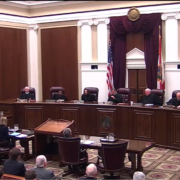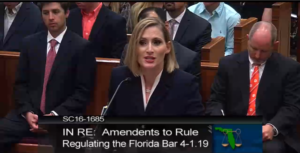When you file and serve a petition in a Florida family law case that involves financial issues such as child support, alimony, or the division of property in debts, a clock starts ticking. Within 45 days of the initial pleadings being served on the respondent, each party is required to provide the other party with a whole host of financial documents and information.
This is what is known as Mandatory Disclosure, and it is governed by Rule 12.285, Florida Family Law Rules of Procedure.
The following are a list of documents that are required to be exchanged:
(1) A financial affidavit in substantial conformity with Florida Family Law Rules of Procedure Form 12.902(b) if the party’s gross annual income is less than $50,000, or Florida Family Law Rules of Procedure Form 12.902(c) if the party’s gross annual income is equal to or more than $50,000, which requirement cannot be waived by the parties. The financial affidavits must also be filed with the court. A party may request, by using the Standard Family Law Interrogatories, or the court on its own motion may order, a party whose gross annual income is less than $50,000 to complete Florida Family Law Rules of
Procedure Form 12.902(c).
(2) All federal and state income tax returns, gift tax returns, and intangible personal property tax returns filed by the party or on the party’s behalf for the past 3 years.
(3) IRS forms W-2, 1099, and K-1 for the past year, if the income tax return for that year has not been prepared. Read more →
 In the video below, from the Florida Academy of Collaborative Professionals, attorneys, mental health professionals, and financial professionals discuss the new collaborative divorce statutes and rules:
In the video below, from the Florida Academy of Collaborative Professionals, attorneys, mental health professionals, and financial professionals discuss the new collaborative divorce statutes and rules:

 Therapeutic justice is a process that attempts to address the family’s interrelated legal and nonlegal problems to produce a result that improves the family’s functioning. The process should empower families through skills development, assist them to resolve their own disputes, provide access to appropriate services, and offer a variety of dispute resolution forums where the family can resolve problems without additional emotional trauma.
Therapeutic justice is a process that attempts to address the family’s interrelated legal and nonlegal problems to produce a result that improves the family’s functioning. The process should empower families through skills development, assist them to resolve their own disputes, provide access to appropriate services, and offer a variety of dispute resolution forums where the family can resolve problems without additional emotional trauma.

